Fruits That Work Just as Well as Supplements, Science Says
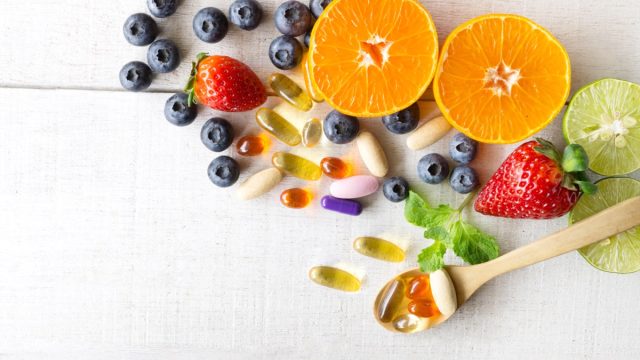
Supplements may seem like a silver bullet solution to all your nutritional needs, but experts say that whenever possible, it’s best to get your nutrients from your diet, which largely includes fruits.
“Vitamins and minerals are most potent when they come from food,” explains Harvard Health Publishing. “In food, they are accompanied by many other beneficial nutrients, including hundreds of carotenoids, flavonoids, minerals, and antioxidants that aren’t in most supplements.”
Besides offering more complete nutrition, eating a diverse range of fresh fruits and vegetables in a variety of colors can help protect against chronic illness, including Type 2 diabetes, heart disease, and cancer. Your doctor can help you determine if you have a deficiency in any one vitamin or mineral, and from there, you can work toward replenishing your stores by finding the best foods for you.
Wondering which fruits work just as well—if not better—than supplements? These are the nutrient-packed snacks to eat if you want to stave off illness and maximize your total nutrition, no supplements needed.
RELATED: 4 Best Fruits to Erase Bloating, Science Shows.
Potassium: Bananas, apricots
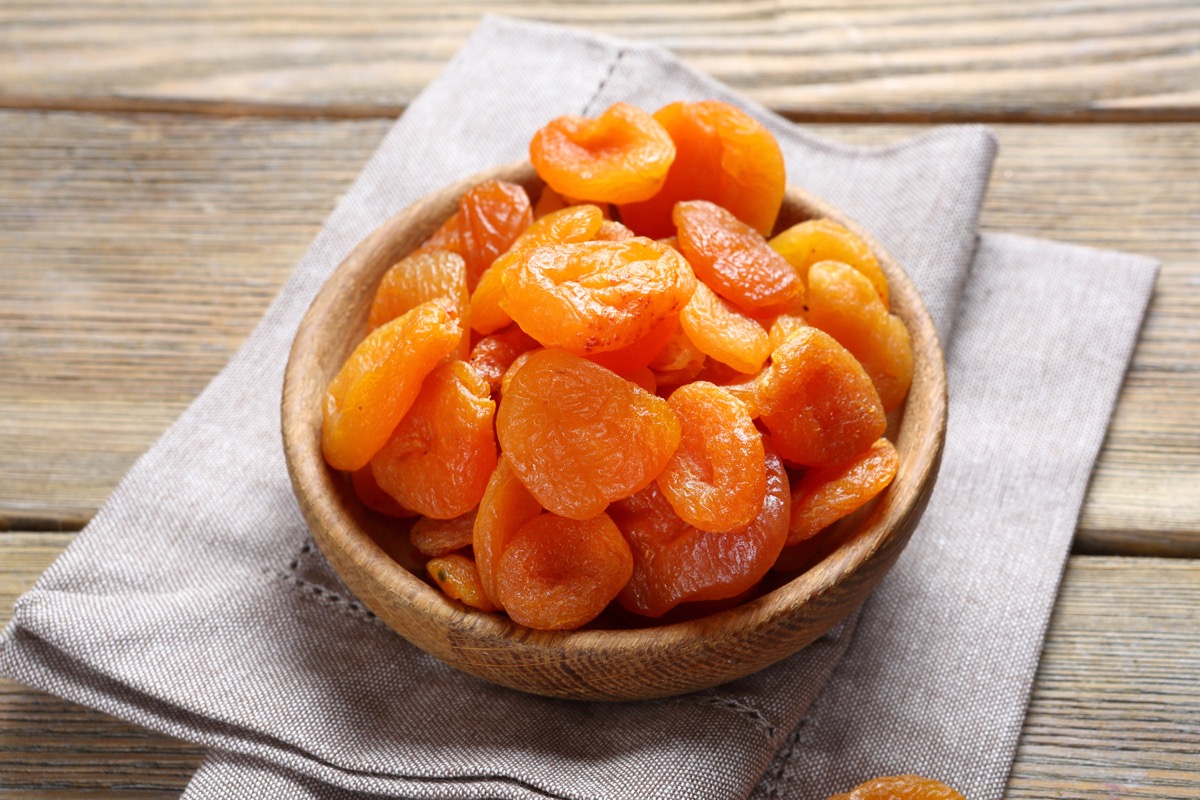
Potassium’s role in the body is to ensure that cells have a normal amount of fluid inside them. Though many people with low potassium levels won’t notice any symptoms, some people will experience electrolyte imbalance, fluctuations in blood pressure, muscle weakness, muscle cramps, and heart arrhythmia.
If you’re falling short of the daily recommended amount of potassium—3,400 mg for men and 2,600 mg for women—bananas are a popular choice for getting back on track. This makes sense: A medium-sized banana contains roughly 422 mg of the mineral.
However, experts say there are other fruits that are even higher in potassium by weight. For instance, half a cup of dried apricots contains 755 mg of potassium, getting you even closer to your goal.
Iron: Apricots, raisins
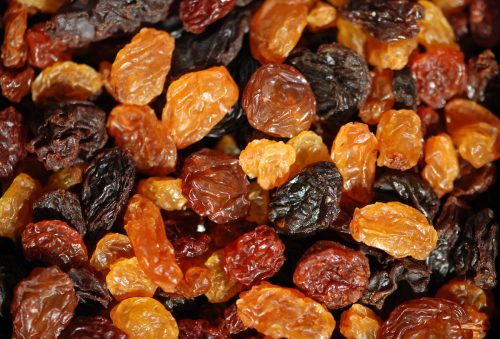
Your body needs adequate iron levels for your red blood cells to work properly, and many people take iron supplements to ensure they’re getting the job done. In fact, it’s not uncommon to come across iron supplements that contain 65 mg of iron or more.
However, these high-dose supplements far surpass the recommended daily amounts of iron: 8 mg for men and 18 mg for women. By raising your total iron level above 20 mg, you also raise your risk of constipation, stomach pain, stomach ulcers, and more.
If a doctor has confirmed that your iron levels are low, eating heme sources of iron such as meat and fish can help you boost your numbers. However, Harvard Health experts suggest that plant-based sources of the mineral such as dried apricots and raisins can also help you reach your daily quota without raising your levels too high.
RELATED: 12 Supplements You Should Never Take Together, Medical Experts Say.
Vitamin C: Citrus fruits, kiwis, mangoes, and berries
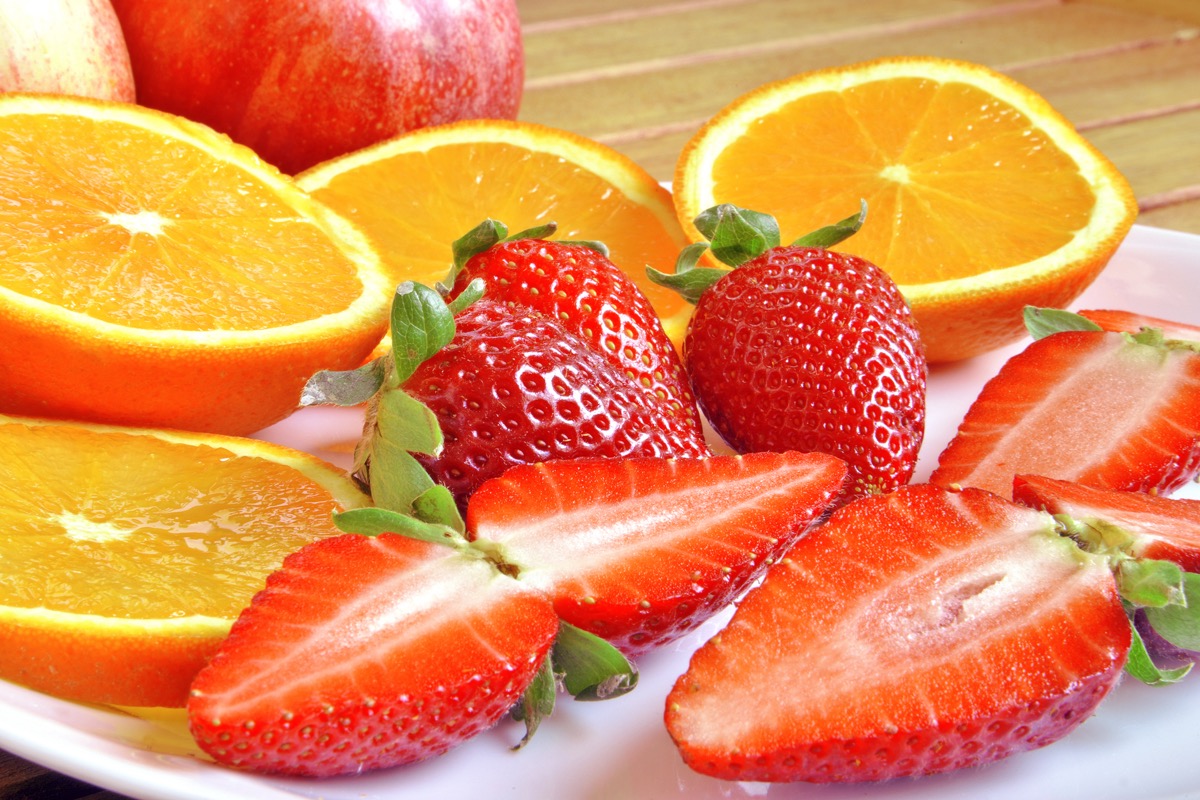
Vitamin C is crucial for helping your body grow and repair itself through immune function. Experts say you can easily get all the vitamin C you need by eating citrus fruits, kiwis, mangoes, and berries.
One major benefit of consuming vitamin C through your diet rather than a supplement is that you’re far less likely to take too much. The recommended daily amount is 75 mg for women and 90 mg for men. However, many high-dose supplements contain 1,000 mg per pill, making you more likely to suffer side effects. This can include nausea, vomiting, diarrhea, heartburn, stomach cramps or bloating, fatigue and sleepiness, headache, or skin flushing, the Mayo Clinic notes.
Vitamin A: Cantaloupe
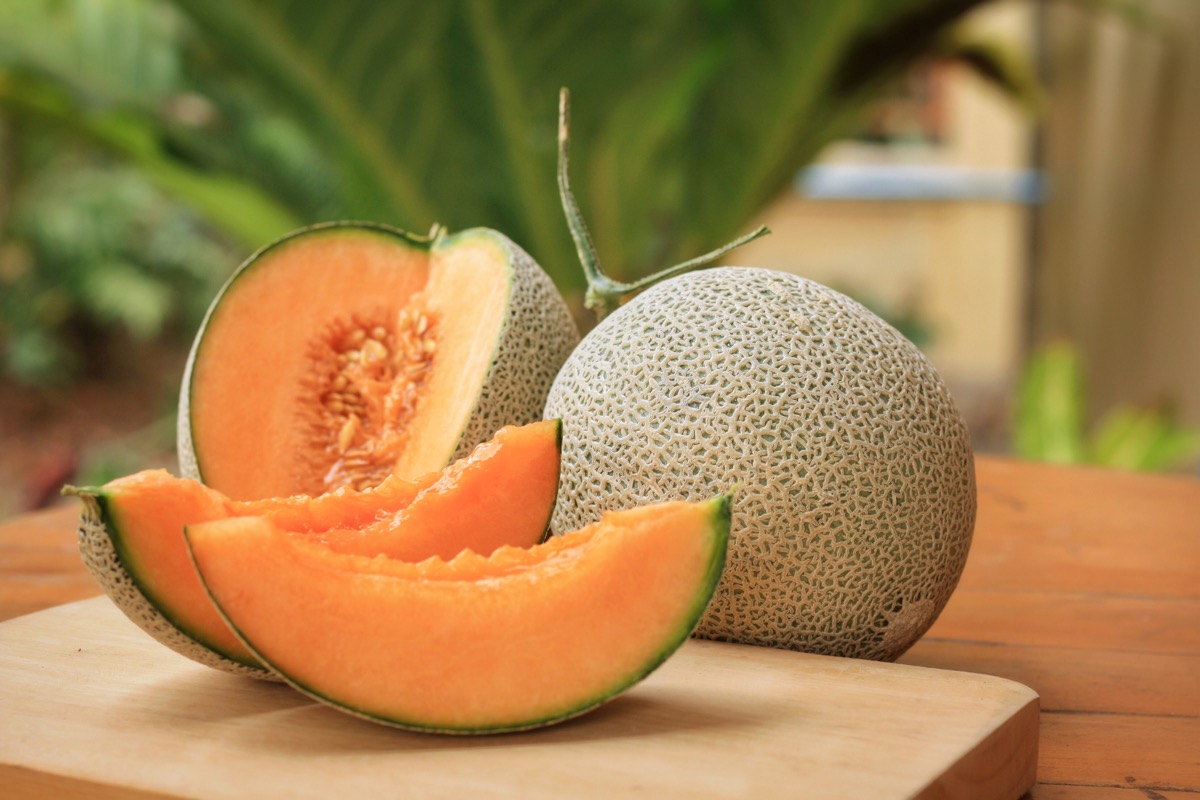
Vitamin A, also known as retinol or retinoic acid, is a nutrient that aids in vision, growth, cell division, reproduction, and immune function. Harvard experts recommend cantaloupe as a great source of vitamin A, with 3,382 IU of vitamin A per 100-gram serving.
“As an oral supplement, vitamin A mainly benefits people who have a poor or limited diet or who have a condition that increases the need for vitamin A, such as pancreatic disease, eye disease or measles,” explains the Mayo Clinic. “If you take vitamin A for its antioxidant properties, keep in mind that the supplement might not offer the same benefits as naturally occurring antioxidants in food.”
Best Life offers the most up-to-date information from top experts, new research, and health agencies, but our content is not meant to be a substitute for professional guidance. When it comes to the medication you’re taking or any other health questions you have, always consult your healthcare provider directly.
- Source: American Heart Association: How Potassium Can Help Control High Blood Pressure
- Source: NIH: Iron
- Source: Harvard Health Publishing: Are certain fruits healthier than others?
- Source: Mayo Clinic: Is it possible to take too much vitamin C?
- Source: Mayo Clinic: Vitamin C
- Source: Mayo Clinic: Vitamin A